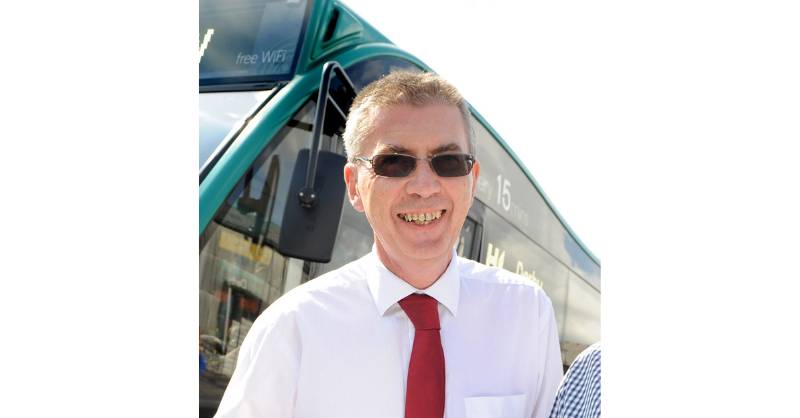December 16 2020
This week’s blog post is from award-winning scheduler Richard Sherratt from trentbarton. Richard writes about the vital role of schedulers, what they do and how they keep passengers moving.
“Every bus company needs a Richard” and “Richard makes it possible for our network to do what it does every day”. Just a couple of comments I received as a result of becoming The Joe Wood Scheduler of the Year.
So, how do you match 300 buses, 800 drivers and thousands of customers with the aspirations of directors, customers, drivers and local depot teams? At trentbarton, we promote each route or group of routes as separate brands which are operated by dedicated buses and teams of drivers. As there is no interworking of routes, we have to decide how many buses to allocate to each route and achieve the optimum frequency and service possible.
Today, operators are deluged with data provided by their ticket machines and the key is managing this data. Apart from identifying key passenger flows, I find the most important tool is scheduled deviation, so we can match the running time of a brand to the traffic conditions. Each brand and area have their own unique problems. The modern challenges are that bus services can become like train services with departure slots at both terminals, as is the case with our brands between Nottingham and Derby. The other challenge is congestion (well it was in the pre-Covid world!). skylink which runs between Derby, East Midlands Airport and Leicester can have congestion throughout the route and at different times on different days, and that’s before any problems caused by closures of the M1 and A50.
The key to designing a successful timetable is to make your assets sweat and the drivers relaxed. It needs to be flexible so that it doesn’t fall apart once a driver is 5 minutes late for a changeover. Computer generated shifts are efficient, but they always leave the difficult bits for the scheduler to cover. The human touch is important in that you know what will and won’t work, and you can provide that bit of flexibility to reduce the pressure on the service delivery teams at depots.
It is also important to deliver the expectations of the driving team, who are the most important asset to any company. Efficient schedules can mean that shifts are between 6 and 12 hours, creating 4 day, 5day and part time rotas. Again, the human touch is important, some drivers like weekends off and others like rest days together. The aim is to deliver this with rest days and spare coverage balanced across the week.
So, it is thanks to Cityswift and Passenger Transport for recognising the important work done by schedulers throughout the country. It is usually the case that good schedulers go unnoticed because things work and just happen, a bus appears at the bus stop when the customer is expecting it.
Find out more about the Joe Wood Scheduler of the Year award and Richard’s win here.
Follow @trentbartonland on Twitter to stay up to date with their latest activity.
